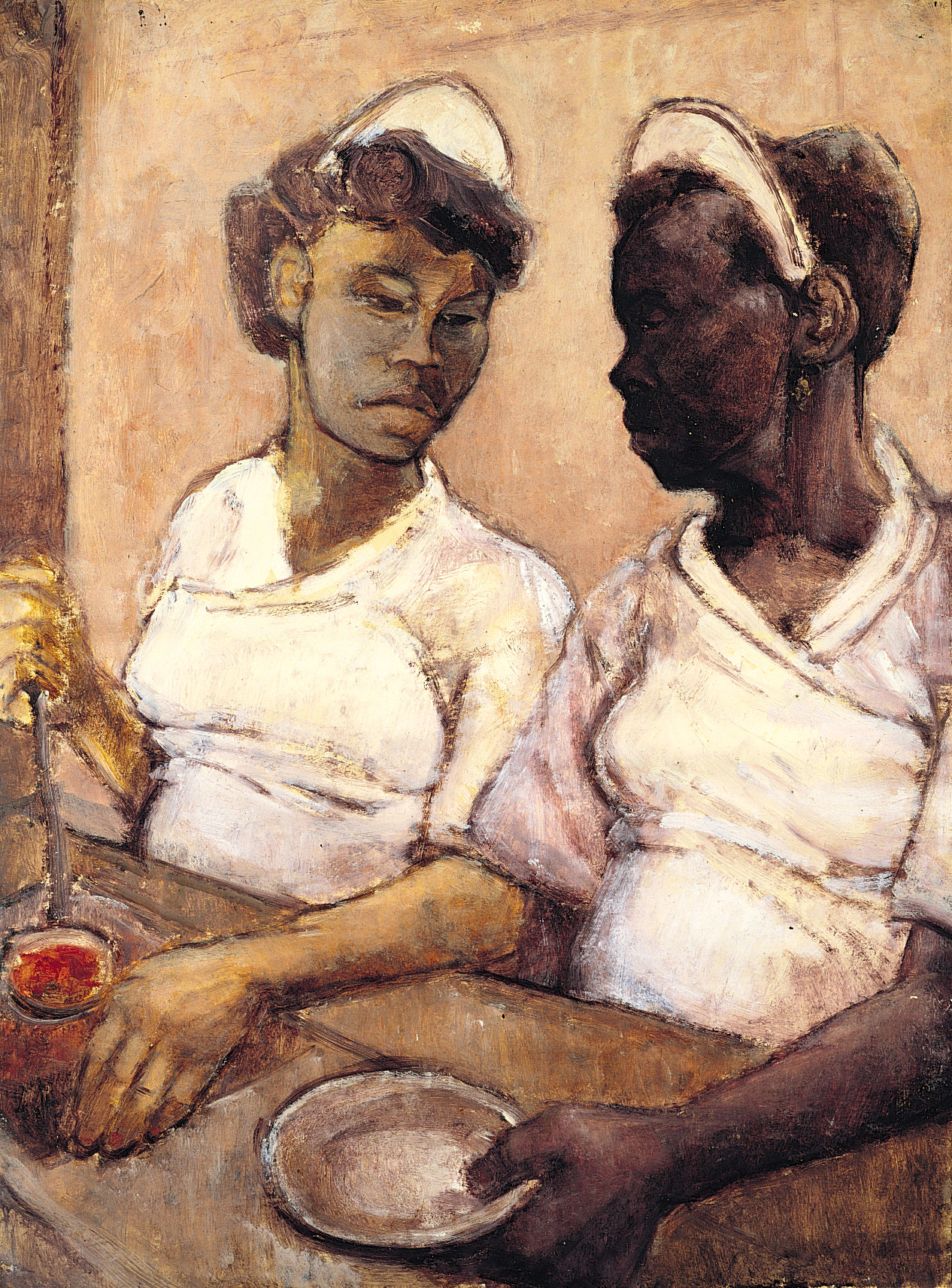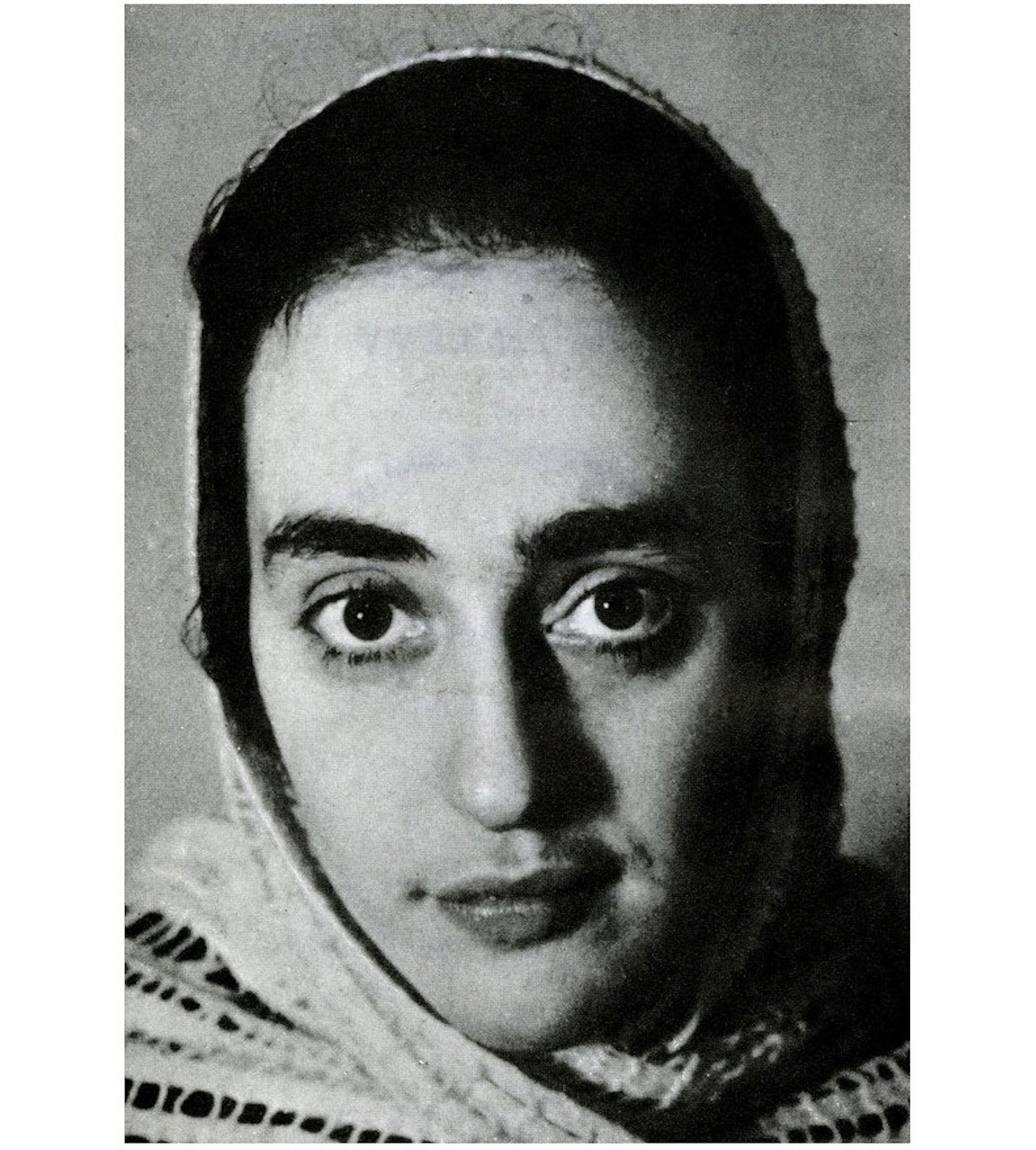Eva Frankfurther was born into an assimilated Jewish family in Berlin in 1930, arriving in England in 1939 as a child-refugee. After the war, she studied at St Martin’s School of Art (1946–51), where her fellow students included Frank Auerbach and Leon Kossoff. Following graduation, already disillusioned with the art scene, but determined to live independently, she worked evenings as a counter hand and washer-up at Lyons Corner House, Piccadilly, and painted during the day. With its transient population, which included many migrant workers, Lyons provided her with ‘boundless material in the way of human beings’ – enough to people her work for the next five years. In these pioneering portraits of the new immigrant populations, Frankfurther’s painting also has a documentary function, recording the beginnings of a new multicultural Britain. ‘West Indian, Irish, Cypriot and Pakistani immigrants, English whom the Welfare state had passed by, these were the people amongst whom I lived and made some of my best friends’, she wrote.
In West Indian Waitresses, Frankfurther captures her subjects with empathy and dignity, focusing on the women’s faces and postures, employing loose brushwork and dry paint, sparingly applied. Although they neither smile nor engage with the viewer, her rose-coloured background is typical of the ‘feminine’ palette that indicates the artist’s instinctive sympathy for women. The composition is carefully arranged so that the two women mirror one another, implying a close personal as well as professional relationship between them. With their distinctive Lyons’ crossover overalls and head-dresses and fashionably-styled hair, they can be firmly located in the 1950s. Lyons had originally been famous for its ‘Nippy’ waitresses, but Frankfurther also records the introduction of the self-service style cafeteria, where counter staff portion out standardised food from open bains-marie. The strong verticals of the women’s bodies and the solid horizontals of their arms form a static framework counterbalanced by a series of strong diagonals, while their stilled gestures suggest a rare, quiet moment among the busy, noisy reality of restaurant life.
Sarah MacDougall, March 2017
This work will be included in Refugees: The Lives of Others – Selected Works by Eva Frankfurther, Ben Uri Gallery and Museum, 29 March – 18 June 2017


 Eva Frankfurther
Eva Frankfurther